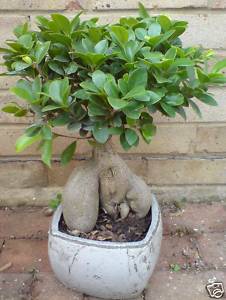lawn, gardening, organic, birds
In concentrating as we do on the subject of Lawn Care, I suspect that we often are guilty of missing the bigger picture with regard to our gardens. For example, a lawn does not just sit in splendid isolation, but should be part of the scenic "whole" garden. Thus we need to ensure the surrounding context - plants, flowers, insects, birds and so on - are equally attended to, so that a harmonic balance is achieved. Only by so doing will we create the true harmonic "whole entity" that is a true garden.
On this point, I came across this Article by Rosemary Drisdelle at http://bird-habitats.suite101.com on the subject of attracting Birds by planting the appropriate trees and shrubs. It is fresh and thought provoking and I recommend it to you!
Gardeners often choose garden plants that are attractive to birds. Here's a sampling of plants of various types that you might use.
If you’re thinking about putting some plants in your backyard bird habitat that will bring in more birds, you’ll need to think about how much space you have and what will grow well in your area. Here are eight suggestions to get you thinking:
Crabapple: a tall spreading flowering tree that grows well in most parts of North America and much of Europe and Asia. The small fruit are eaten by birds and other wildlife, and the high dense branches provide roosting and nesting sites. Crabapples need a lot of space.
Hawthorn: a small tree suited to smaller yards. Hawthorn has fruit on its branches in the colder months, so it can be an important source of food for birds in winter. It also provides good nesting sites and cover from predators. Cardinals and Cedar Waxwings, among other birds, are attracted to hawthorn.
Elderberry: a tall shrub that produces delicate flowers and abundant small fruits—a good plant to grow if your soil is moist. Cedar Waxwings, Rose-breasted Grosbeaks, Gray Catbirds, and dozens of other species of birds visit elderberry for food, nesting sites, or shelter.
Currant: a smaller shrub that produces flowers to attract hummingbirds, and fruit that draws American Robins, California Thrashers, and Hermit Thrushes. Birds that nest near the ground in dense bushes will use a currant bush. A number of species of currant are available, many of which are very drought tolerant.
Honeysuckle: a vine, and a favorite of hummingbirds. A large healthy honeysuckle will also provide lots of insects for birds to eat, fruit that is attractive to blue birds, and sheltered nesting sites.
Rose: shrubs or climbers that flower beautifully while providing insects for food in summer and rosehips in winter. Cardinals and sparrows are noted for visiting roses. The dense thorny growth of many roses provides good protective cover for birds, and safe nesting sites as well.
Sunflowers: tall showy annual flowers that produce a favorite food of many birds—sunflower seeds. The plants stand in the garden well into the fall for birds to visit, or you can harvest the seed and put it out in a feeder all winter.
Butterfly weed: a tall perennial known for attracting butterflies—and it's also a favorite host plant for growing caterpillars. A garden full of butterflies and caterpillars is beautiful in its own right, but it also attracts insect eating birds.
When choosing plants to attract birds to your garden, be sure to consult a local garden specialist to be sure your choices are appropriate for conditions in your area. As well, don’t forget that using herbicides and insecticides in your garden can create a toxic environment for birds and reduce their food supply by killing worms, insects, and other invertebrates. To enjoy lots of birds and butterflies in your garden, switch to chemical free gardening methods.
Terry Blackburn. Internet Marketing Consultant, living in South Shields in the North-East of England. Author and Producer of blog http://www.lawnsurgeon.blogspot.com Author of "Your Perfect Lawn," a 90 Page eBook devoted to Lawn Preparation, Lawn Care and Maintenance. Find it at http://www.lawnsurgeon.com
I would be very interested to have your comments on this Article.
Article Source: http://bird-habitats.suite101.com
lawn, gardening, organic, birds

No comments:
Post a Comment